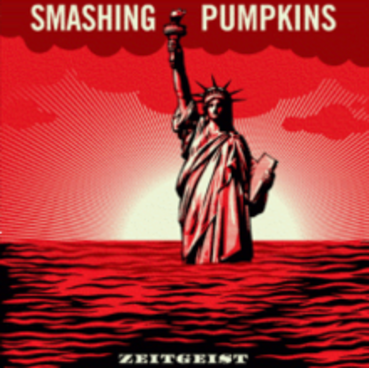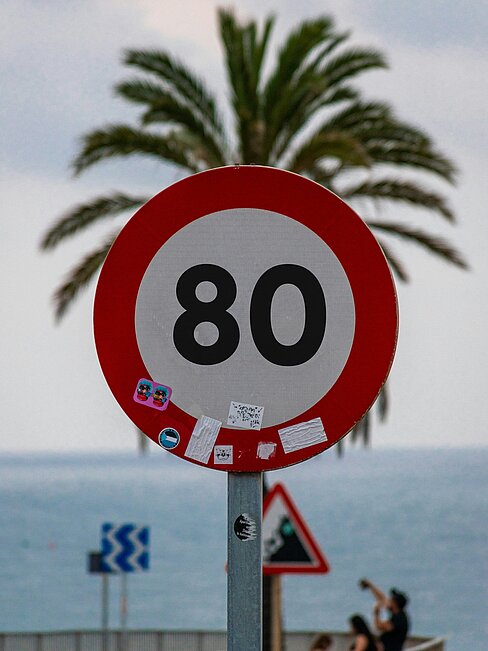Farewell Zeitgeist
February 2024 • 603 words • Header image © Unsplash Alka Jha
Is the term 'zeitgeist' losing its relevance in today's ever-evolving society? Discover why it's time to bid farewell to this once pivotal concept.
The term 'zeitgeist' has a long history and has long been a useful tool for describing the characteristic ways of thinking, ideals and cultural trends of a particular era. The term 'zeitgeist' has also found its way into the English language unchanged. An appropriate translation would be 'spirit of the age' or 'general trend'. In today's fast-paced and highly individualised society, however, the term seems to be losing its meaning. But is the term still useful?
Today, 'zeitgeist' is no longer used to describe eras, but rather rapidly changing fashions. The focus is on differentiation from the past, the old and yesterday. The zeitgeist, which is expressed in lifestyle and attitude to life through vocabulary, music, manners, clothing, hairstyle, ideology, etc., is ultimately an expression of youth culture in a consumer and affluent society. It serves to differentiate and distinguish oneself from the older generation.
In branding, the term is often used to demonstrate that you know and follow the current trend and that all your activities reflect the current lifestyle. This suggests modernity and timeliness. The term 'zeitgeist' is indeed very catchy, easy to understand and sounds better than 'contemporary', 'trendy' or 'modern'. However, the question is to what extent the term itself can become a trend, used for anything and everything, wearing out and disappearing with it. After all, it's like any other trend: at some point you can't stand it any more, and both time and the zeitgeist pass it by.
And really: 'zeitgeist' - this word has been stuck in our heads for the past few years like a stubborn piece of chewing gum under your shoe. It seems that you can't have a discussion, read an article or have a coffee without someone throwing around this hackneyed word. But I wonder: is the zeitgeist really as indispensable as it seems, or should we finally retire this overused term?

The zeitgeist undoubtedly has its place in cultural discourse. After all, it attempts to capture the atmosphere, mood and trends of a particular era. But aren't we living in an age where the term conjures up more clichés than an afternoon soap opera?
History shows that the zeitgeist is a chameleon. It changes colour as quickly as the latest fashion trends. In our fast-paced world, where social media and viral videos spread trends faster than the common cold on a crowded subway, the zeitgeist seems to struggle to keep up with the times.
But perhaps that's the point. Perhaps the zeitgeist has become a victim of its own popularity. The term is used so often and in so many contexts that it loses its meaning. It has become an empty buzzword that elicits more eye-rolling than genuine interest.
Perhaps we should say goodbye to this tired term and focus on more precise expressions that capture the nuances and facets of our times. Instead of relying on the zeitgeist, we could talk more specifically about societal changes, cultural trends and political developments. It might even be liberating to free ourselves from the burden of constantly trying to capture the elusive zeitgeist.
In a world of innovation and change, our words and terms should not stagnate. It's time to say goodbye to the zeitgeist and make way for fresh, more precise phrases. It's about time, our vocabulary is developing at the same speed as the world around us. //rb




folget
Lebt der Zeitgeist doch noch? Es wird immer schwieriger, den Zeitgeist als klaren Orientierungsbegriff zu fassen. Statt einer großen Linie puzzelt sich heute jeder seine Lebenswirklichkeit aus oft widersprüchlichen Einzeltrends zusammen. Der Zeitgeist ist eher eine dynamische Überlagerung vieler Mikro- und Makrotrends, die sich ständig verändern. Marken, die sich vom Mainstream lösen, werden oft selbst Teil eines neuen kulturellen Narrativs – sei es durch bewusste Abgrenzung oder Adaption.
Ein Beispiel: Die Veganismus-Bewegung begann als Gegentrend zur industrialisierten Fleischproduktion. Heute ist sie so verbreitet, dass selbst Fast-Food-Ketten wie McDonald’s vegane Produkte anbieten. Was einst ein Mikrotrend war, wurde Teil des neuen Zeitgeists.
Die Herausforderung für Marken liegt weniger darin, sich vom Zeitgeist zu emanzipieren, als vielmehr darin, ihn differenziert zu interpretieren. Patagonia zeigt, wie dies gelingt: Die Marke bleibt authentisch und konsequent, obwohl Nachhaltigkeit längst ein 'Trend' ist. Ihr Erfolg liegt in der klaren Umsetzung ihrer Werte. Dieser Weg – treu zu den eigenen Prinzipien – sollte Marken immer leiten.

